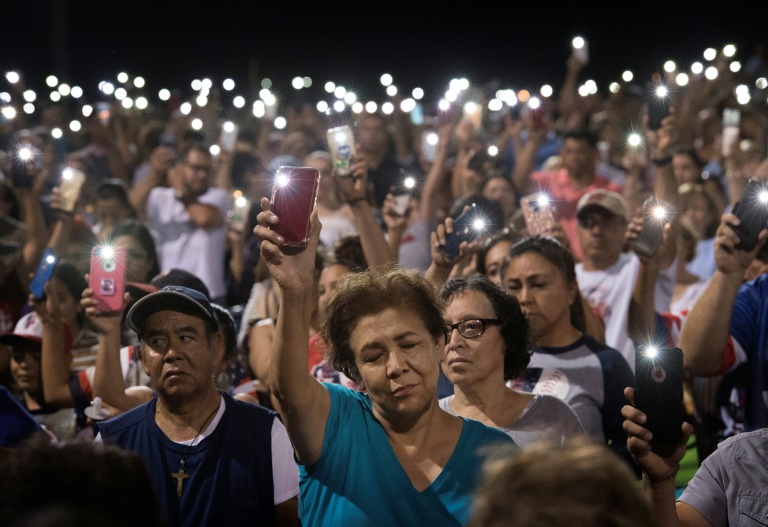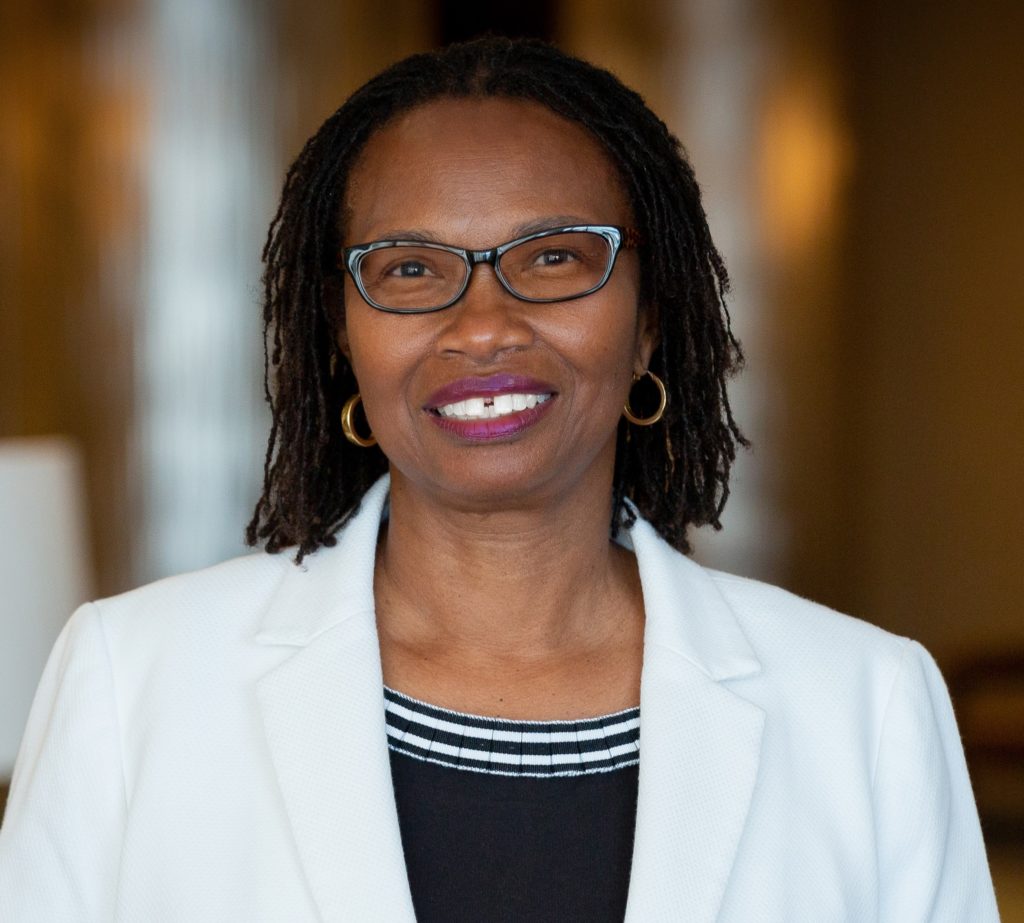By Patricia L. Smith, TFN President & CEO
Three mass shootings in less than a week. Two of which involved a shooter who espoused white supremacist views before launching horrific attacks.
Like most of you, I have spent the last several days trying to wrap my head around what we’ve become as a nation. Who we are. Where we’re going.
Nine dead in Dayton, Ohio, after a gunman opened fire on people just looking to hang out at their neighborhood bar.
Twenty-two dead in El Paso, killed by a gunman whose racist manifesto lamented a “Hispanic invasion.”
Three dead at a festival in Gilroy, Calif., shot by a man who promoted white supremacist literature on social media shortly before the attack.
At the time of this writing, there have been 253 mass shootings in America this year, according to the non-partisan Gun Violence Archive. More shootings than days so far in 2019.
The mind reels and the heart aches.
Of course, we know that incidents involving guns have been a plague on America before the current administration — including not just mass shootings, but also deaths by suicide, domestic violence, police-involved shootings and depressingly routine violence that rarely merits more than a 20-second segment on the local news.
And yes, we know that racism and xenophobia likewise predate the current administration — it is impossible to look at our history without considering the taint of slavery, genocide and forced displacement of native peoples, the treatment of immigrants and the legacy of inequitable policies that continue to impact access to everything from clean air and drinkable water to affordable healthcare and decent housing.
We know that there are many people and institutions — including among the membership of the Funders’ Network — who have spent years and decades tackling these very issues.
We know all of this this. And yet it doesn’t lessen the pain and confusion and horror of the past few days. And it doesn’t lessen the grim reality that these shootings may one day fade from our minds.
Don’t believe me? Take a look at this list of the deadliest mass shootings in recent decades and count how many you’ve forgotten. How many have slipped from your memory until you see the names of the city and the death toll once again in black and white?
Maybe this time will be different. We always hope that this time will be different.
I will note that the president’s public statement on Monday — unlike those made in the aftermath of the deadly alt-right protest in Charlottesville — stated that our “our nation must condemn racism, bigotry, and white supremacy.”
But the words read off the teleprompter are in stark contrast to the racist and xenophobic language of his tweets and campaign rallies.
Telling four congresswomen, all women of color, to “go back to where they came from.” Describing the predominately black city of Baltimore as rat-infested and unfit for humans, and leveling jeering broadsides against its African American congressman.
Repeatedly describing immigration as an “invasion” and offering little more than a smirk when a supporter shouts that the best way to deal with illegal immigrants is to “shoot them.”
Words matter, to say nothing of actual policies — enacted or envisioned — that desecrate the environment, separate families and undermine our faith in civic institutions.
The most recent barrage of divisive statements tap into some of the oldest and most pernicious of racists tropes: That the color of your skin, the origins of your last name, or the place where you — or your parents, or your grandparents — were born, makes you less than. Less of an American. Less of a human.
These comments come after months of escalating, hard-line policies and toxic rhetoric that have contributed to a humanitarian crisis at our borders; deplorable conditions at centers where men, women and children seeking refuge are held; efforts to pose a citizenship question on the U.S. Census that could have resulted in a drastic undercount of immigrant communities; and ongoing confusion about whether immigrants and asylum-seekers will be afforded due process guaranteed to them under the law.
The drumbeat of vitriol directed at black and brown people, including migrants seeking refuge at our borders, erodes trust in our communities.
Over the past year, we have heard chilling reports from across our network about how these inhumane actions and attitudes have further isolated a vulnerable population — including a sharp decline in reports of sexual assaults and other serious crimes against immigrants and refugees because victims are distrustful of local authorities and a hesitancy to send children to school or report for work because of fears of being detained.
We saw this in El Paso, where some victims of the shooting were reluctant to seek aid because they feared detention or deportation based on their immigration status.
We are seeing this firsthand in South Florida, which is home to a thriving and diverse community of immigrants from across the world.
South Florida is also home to TFN’s main office, where the majority of our staff are either immigrants or first-generation Americans.
I stand with them, and the rest of the TFN family, in rejecting the racist and xenophobic language that has recently dominated public discourse and continues to poison political debate.
TFN was founded 20 years ago as a non-partisan organization committed to helping create communities that are sustainable, prosperous and just. But non-partisan does not mean that our values are negotiable.
As an organization, we state unequivocally that for communities to truly thrive, those communities must fully embrace and engage all those that have been historically marginalized because of their race, gender, sexual orientation, religion or cultural background — including immigrants, descendants of enslaved people and members of indigenous communities.
As leaders in philanthropy with deep ties to the places you serve, you are uniquely positioned to speak out against intolerance, stand up for the less fortunate and work towards creating communities that are compassionate and just.
To those of you whose foundations are doing this work: Keep at it.
Share what you’re doing and what you’ve learned with us, so that we can in turn amplify those lessons across the network. We are committed to providing a place for our members to come together to share their learning and devise the strategies that will help achieve those goals.
To those of you whose foundations are just beginning to articulate and fight for the values of equity and inclusion — and to those of you who are facing obstacles in even starting those often uncomfortable conversations: Don’t give up.
We’re here for you and are committed to helping our members access the tools and learning they need to turn ideals into impact.
As many of you know, our 2020 Annual Conference will take place March 16-18 in San Diego, which like El Paso is a border town. Our time in San Diego will present an opportunity for funders to reflect and learn about life on the border, including not just the challenges but the rich cultural history of the city as well. Our conference theme — Bridge the Divide — is a challenge to examine and confront the barriers to opportunity, empowerment and justice for all.
As I look across our diverse network of funders and partners, I see people working in communities that span that from coast to coast, from small towns and rural areas to metropolitan cities and their suburbs.
And I see the tremendous potential that can come when we harness our good intentions and leverage our collective resources for the betterment of all.

How to Help
The Dayton Foundation has established an Oregon District Tragedy Fund for the victims’ families.
The El Paso Victims Relief Fund, organized in part by the Paso Del Norte Community Foundation.
The El Paso Community Foundation is also accepting donations for victims of the shooting.
The American Red Cross is accepting donations online.
Public Good has launched a fundraiser benefiting Dayton and El Paso victims.
Responses from Leaders in Philanthropy
Below is a roundup of recent statements from leaders in the sector speaking out against racism and xenophobia. Please contact TFN Director of Communications Tere Figueras Negrete if you would like to have a statement added to this list.
Chronicle of Philanthropy: Philanthropy Reacts on Social Media to Mass Shootings in El Paso and Dayton
Kiran Ahuja, CEO, Philanthropy Northwest: Philanthropy Leaders, Join Me in Rebuking Trump’s Racist ‘Go Home’ Tweets
Fred Blackwell, CEO, San Francisco Foundation: Battle the Bully Pulpit, Right Here at Home
Jim Canales, President & Trustee, Barr Foundation: We Must Persevere
Don Howard, President and CEO, The James Irvine Foundation: Standing up to divisiveness, providing aid for immigrant families
Grant Oliphant, President, The Heinz Endowments: It’s Time to Bring Back America’s Noble Impulses
Rip Rapson, President and CEO of The Kresge Foundation:A ‘problem solver’ president could turn Baltimore around, like Obama did for Detroit
Shanaysha Sauls, President and CEO, Baltimore Community Foundation: Statement on President Trump’s Tweets about Baltimore
About the Author

Pat joined the Funders’ Network in July 2018 as president and CEO, bringing with her a wealth of expertise in the public, private and nonprofit sectors. She is formerly a senior policy advisor for the Reinvestment Fund, a national leader working to rebuild economically-distressed communities through the strategic and innovative use of capital, data and partnerships. Read her full bio here.
